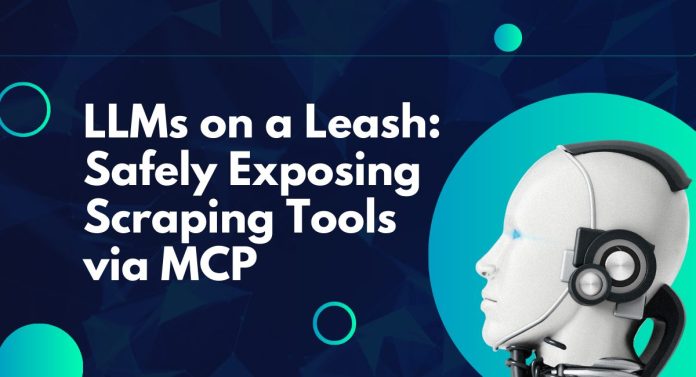In this post, I will show you how to safely expose scraping tools via MCP when using LLMs.
Large Language Models excel at interpreting natural language instructions, but this flexibility creates security risks when connected to enterprise data collection tools.
Unlike traditional software with predetermined logic, LLMs can interpret instructions creatively—potentially exhausting budgets, violating compliance, or triggering legal issues.
Decodo (formerly Smartproxy) addresses this challenge through its MCP server implementation across 125+ million IPs, demonstrating practical techniques for limiting LLM tool access while maintaining operational control.
Table of Contents
Scoped Capabilities: Limiting Access
The principle of least privilege applies to AI agents. Rather than providing broad scraping access, implement specific tools for defined use cases.
Decodo’s MCP server exemplifies this with five distinct tools:
- scrape_as_markdown: web content extraction with built-in sanitization
- google_search_parsed: search results with structured output and filtering
- amazon_search_parsed: eCommerce data with platform-specific rate limiting
- reddit_post: data from the community platform’s specific posts
- reddit_subredit: information from various topics
This granular design allows security teams to authorize specific capabilities rather than broad infrastructure access. Modern implementations adjust tools based on user identity, project context, and time-based restrictions.
Authentication and Budget Controls
Users can extract real-time data with Decodo’s MCP and Web Scraping API. Here are a few features that make it a great choice:
- Cost-efficiency. Users only pay for successful requests, and the Advanced subscription with JavaScript rendering starts from just $0.95/1K requests.
- Flexibility. Web Scraping API has over 100+ pre-made scraping templates and advanced features that allow users to customize their data collection tasks in just a few clicks.
- Convenience. Users can get data directly through their AI tools or export it using the dashboard in HTML, JSON, Markdown, or CSV.
Conclusion
Successfully constraining LLM access requires comprehensive approaches combining technical controls, organizational policies, and robust monitoring. Organizations investing in proper constraint mechanisms can safely leverage AI-powered data collection while maintaining compliance.
Providers like Decodo that emphasize security-conscious implementations enable organizations to maintain LLMs safely “on a leash” while unlocking AI-powered web intelligence potential through controlled, auditable access to scraping tools.
INTERESTING POSTS
About the Author:
Gina Lynch is a VPN expert and online privacy advocate who stands for the right to online freedom. She is highly knowledgeable in the field of cybersecurity, with years of experience in researching and writing about the topic. Gina is a strong advocate of digital privacy and strives to educate the public on the importance of keeping their data secure and private. She has become a trusted expert in the field and continues to share her knowledge and advice to help others protect their online identities.









